‘Enduring pitfalls’: China’s chilling warning over controversial Darwin Port deal
China has issued a chilling warning for one Australian city over a controversial port deal that has left many feeling tense.
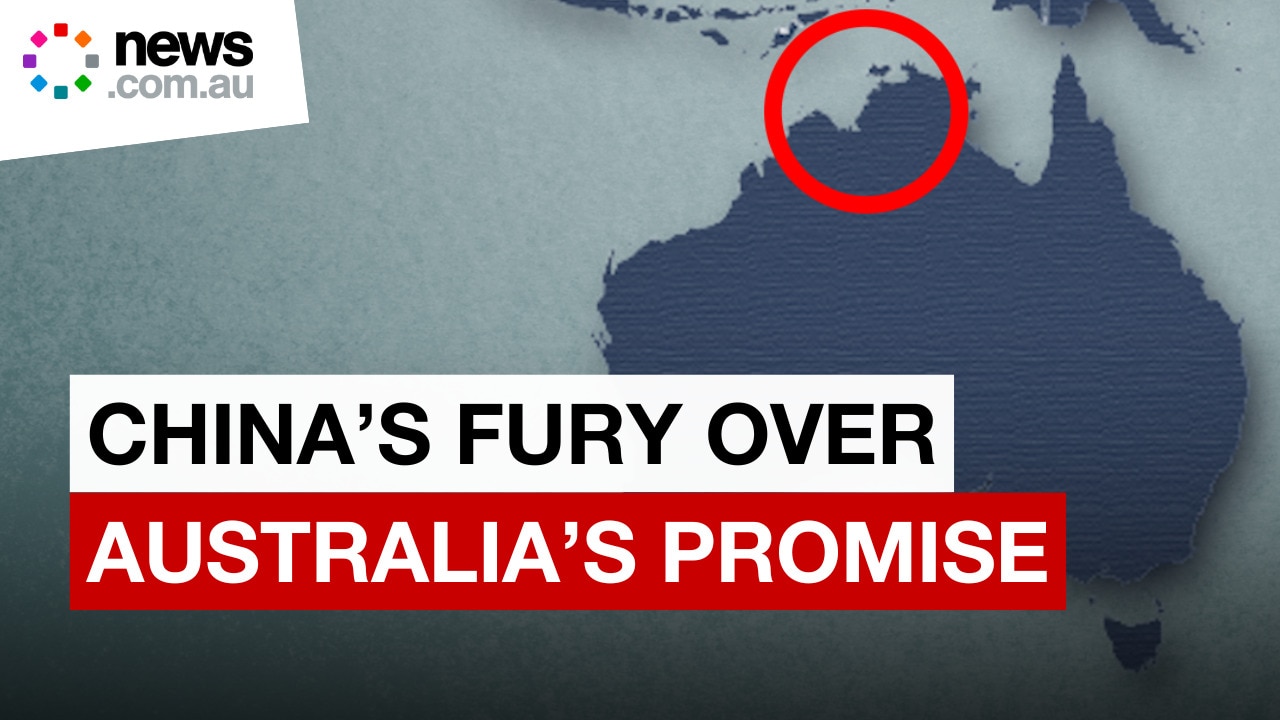
National
Don't miss out on the headlines from National. Followed categories will be added to My News.
China has again warned Australia against plans to take back its strategic Port of Darwin, threatening the move would result in “enduring pitfalls for the country.”
“If the Darwin Port issue is further politicised, or forcibly taken back under the pretext of so-called “national security,” it would become another negative typical case that affects the healthy and stable development of China-Australia relations,” an anonymous editorial in the Chinese Communist Party-controlled Global Times states.

The strategic economic and defence facility was leased in 2015 for $506 million to the Australian subsidiary of a privately owned Chinese company, the Landbridge Group.
The 99-year deal was cemented by the then Country Liberal Northern Territory Government.
The geopolitical fallout was immediate.
The White House complained it had not been consulted. After all, its freshly committed US Marine presence in the Northern Territory relied on the port for support.
Australia’s regional neighbours raised their eyebrows: Hadn’t Canberra been pressuring them to reject significant Chinese infrastructure money?
Ten years later, both Labor and the Coalition went to the May 2025 Federal Election promising to take back control.zi
Military facilities across the Top End are being upgraded “to enhance the ability of the Australian Defence Force to project force,” Brigadier Matthew Quinn said at a sod-turning ceremony earlier this month.
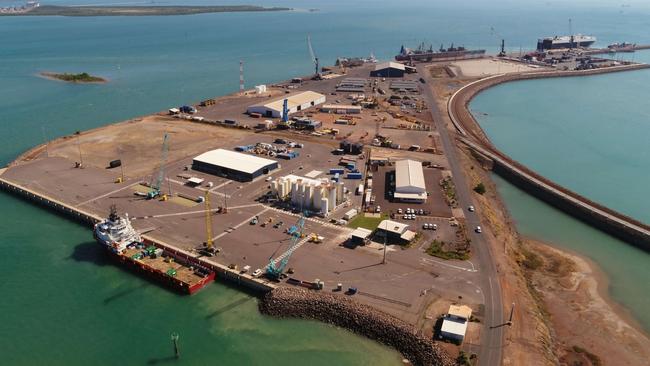
“These critical upgrades follow recent works to enhance the main runway and taxiways, improving the capacity, security and resilience of RAAF Base Darwin.”
It was just one $160 million piece of a massive international defence buildup across northern Australia.
The cause: China’s assertive territorial ambitions.
“Taking back the Port of Darwin from Landbridge Group would also symbolise a dangerous shift from commercial cooperation to military development,” the Global Times warns.
“The move of “de-Sinicisation” aims to remove obstacles for the US to advance its militarisation in northern Australia.”
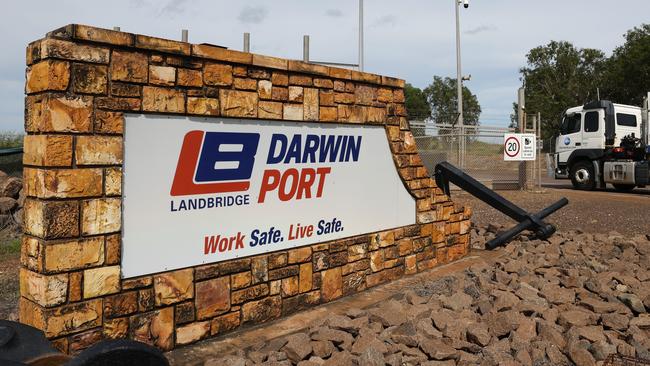
Strategic and economic security
“It is well known that Darwin Port only became linked to so-called “national security” and subjected to a wave of political and security scrutiny after so-called “concerns” were voiced from Washington,” the Global Times editorial insists.
All China-based and owned companies must have Communist Party Commissars on their boards. They must also readily hand over any and all information on their customers and deals to any government agency upon demand.
US President Barack Obama broke the news of potential problems directly with then prime minister Malcolm Turnbull during an APEC meeting in November 2015. He asked that Washington be given a “heads-up” over similar deals in future.
Obama’s cause for concern was obvious. Chairman Xi was, at the time, deeply engaged in building illegal island fortresses on sand banks claimed by Vietnam, the Philippines and Taiwan. His government was vocally asserting ownership over Japan and South Korea’s islands in the East China Sea.
Threats of invading Taiwan had already become commonplace.
Darwin was even then a significant stepping stone for rapidly expanding US and allied military activities in northern Australia.
“As the Indo-Pacific becomes increasingly contested, supply chains become more vulnerable and coercive statecraft becomes more common,” argues Australian Strategic Policy Institute national security analyst John Coyne.
“Darwin’s proximity to key maritime routes and regional partners makes it an indispensable asset.”
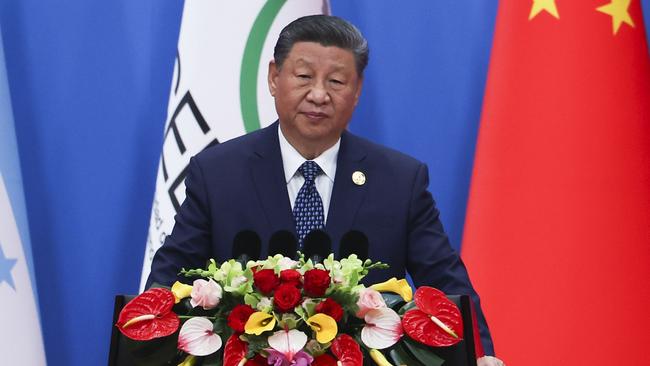
Follow the money
The purchase of the Darwin Port was touted as part of Chairman Xi Jinping’s grand “Belt and Road” vision of a Chinese-controlled trade network spanning the Pacific, Asia, the Middle East, Africa and Europe.
The natural deep-water harbour is strategically positioned as a hub between the Indian Ocean, the South China Sea and the Pacific Ocean. And about 4.5 million tonnes of cargo and significant quantities of oil and gas pass over its piers each year.
In 2015, the Foreign Investment Review Board headed by then federal treasurer Scott Morrison, decided against examining the proposed deal.
The Defence Department, undergoing one of many ministerial transitions, had no objections. And the then minister for trade and investment, Andrew Robb, was ecstatic.
“(It is) a powerful sign of the enhanced commercial relationship between Australia and China flowing from the China-Australia free trade agreement,” Robb declared in October 2015.
Robb resigned from Parliament four months later and immediately took up a position as “advisor” to the Landbridge Group.
Now, both sides of politics are firmly in agreement: Make Darwin Australian again.
During the 2025 election campaign, Prime Minister Anthony Albanese promised the port would be sold to an Australian operator.
This is despite reports US equity firm Cerberus Capital, which has close ties to President Donald Trump’s White House administration, is preparing to make a bid.
Former opposition leader Peter Dutton went further, promising his Liberal-National Coalition would nationalise the asset under government ownership.
But Beijing is biting back.
The Global Times warned Tuesday that “should the Australian government take the drastic step of forcibly taking back Darwin Port”, this would “undoubtedly” produce “enduring pitfalls for the country”.
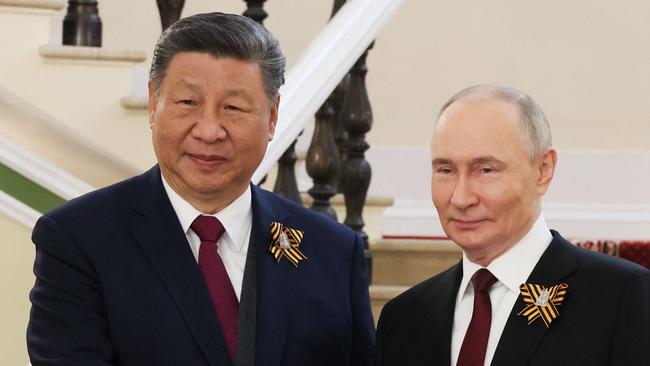
Investor returns
“Whether the Port of Darwin becomes a hub of prosperous trade or the eye of a geopolitical storm is not a difficult choice, but it does test Canberra’s strategic wisdom,” the Global Times editorial reads.
The Communist Party editorial says its 2015 purchase had been “timely assistance” to the Northern Territory at a time when Canberra “wasn’t interested”.
“From turning the port’s operations from loss to profit and helping ease the Northern Territory government’s debt crisis, to investing more than $A83 million and upgrading port facilities … and greatly contributing to local economic and social development, Landbridge Group’s involvement has brought systematic and positive changes to Darwin Port,” it states.
But concern over possible financial difficulties contributed to the port’s prominence in the recent Federal Election.
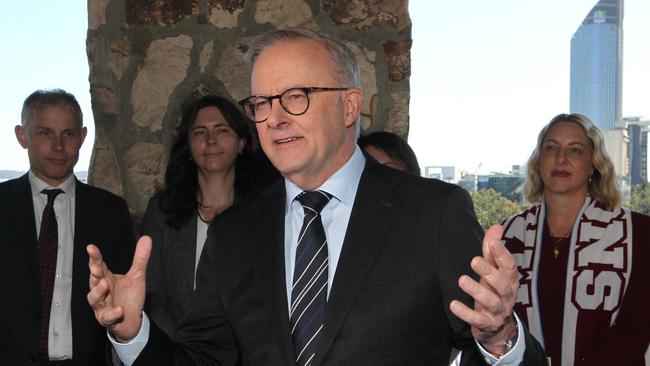
Landbridge Australia non-executive director Terry O’Connor said this week that the company had “not yet received any offers or engagement from the (Australian) government at any level.”
But he “welcomed” comments by Beijing’s envoy to Australia, Xiao Qian.
Xiao issued a statement on Sunday after touring the port’s operations. He insisted the lease had been purchased through “an open and transparent bidding process, fully compliant with Australian laws and market principles”.
“It’s very morally inappropriate to rent out the port when it is in the red and take it back once it is profitable,” he argues.
Tuesday’s Global Times editorial went one step further, warning that placing “politics over the rule of law” sent a “dangerous signal to global investors … especially in sectors like infrastructure and energy that require long-term investment”.
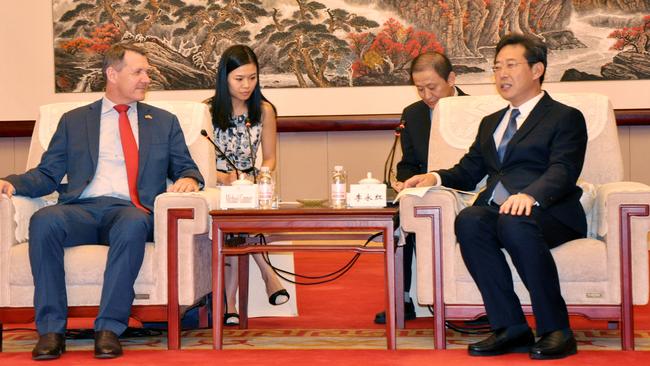
“The operation of Darwin Port is, at its core, a market-driven economic project and should operate within the framework of the rule of law and market principles,” it adds.
But the world economic and security order has been upended since 2015, with Chairman Xi securing an unconstitutional third term and US President Trump vigorously pursuing an “America First” agenda in the opening months of his second term.
“Darwin’s development has long been framed as a national opportunity. It is now a strategic obligation,” Coyne argues.
“Australia cannot afford to leave its north underdone or underutilised.
“A sovereign, commercially viable, and strategically aligned marine industry in Darwin is no longer aspirational.”
Jamie Seidel is a freelance writer | @jamieseidel.bsky.social
Originally published as ‘Enduring pitfalls’: China’s chilling warning over controversial Darwin Port deal





